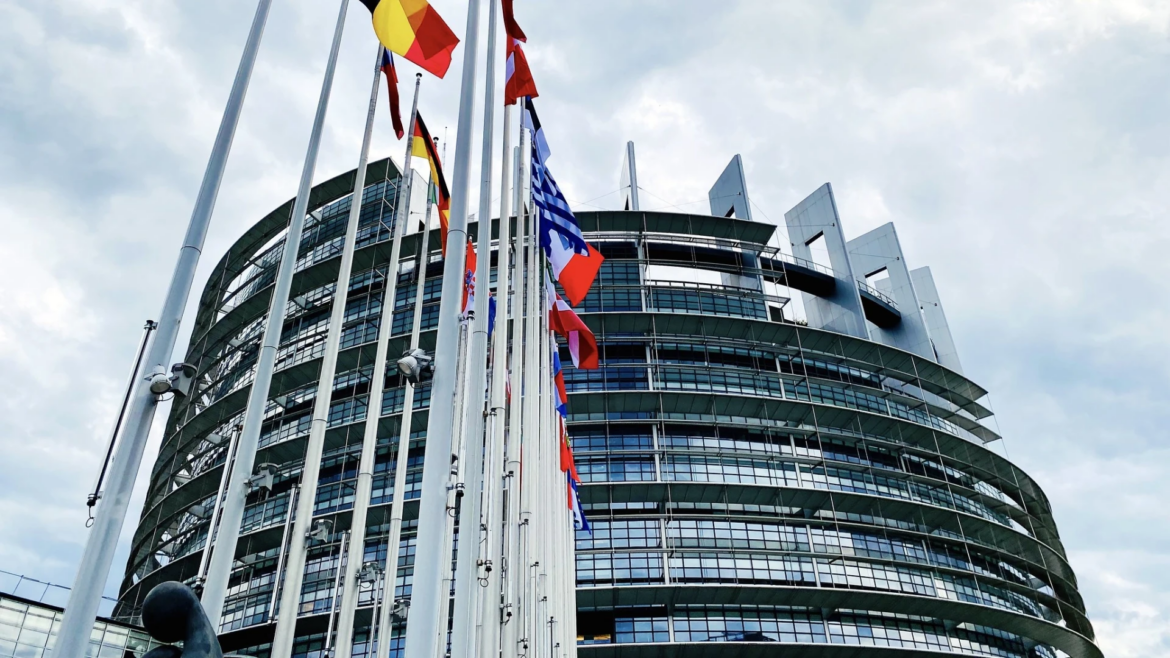Huawei Bribery Scandal Rocks the European Parliament Amid Growing Foreign Influence Concerns
The European Parliament has once again found itself embroiled in a corruption scandal, this time linked to Chinese tech giant Huawei. In recent weeks, police raids have been carried out across Belgium, Portugal, and Italy, as authorities investigate allegations of bribery, forgery, money laundering, and organized crime.
This scandal follows the unresolved “Qatargate” affair, which saw allegations that Members of the European Parliament (MEPs) accepted bribes from Qatar, Morocco, and Mauritania in exchange for favorable treatment and policy influence. With Huawei now at the center of a fresh corruption probe, concerns about foreign meddling in EU institutions have reached new heights.
Huawei’s Influence Network Exposed
The investigation began after Belgian intelligence flagged Huawei’s growing political influence in Europe. The first police raids took place two weeks ago, targeting Huawei’s EU offices in Brussels and the homes of its lobbyists in Belgium and Portugal. A second round of sweeps occurred last week, including inside the European Parliament itself.
So far, at least 15 current and former MEPs are under investigation, with four individuals formally charged for corruption and involvement in a criminal organization.
The bribery scheme allegedly involved Huawei paying off EU lawmakers to influence key legislation and ensure favorable treatment for the company within the European market. Investigators have uncovered a range of corrupt practices, including:
- Cash bribes to lawmakers in exchange for pushing Huawei-friendly policies
- Lavish gifts, including all-expense-paid travel perks, football tickets, and luxury items
- Fake consulting agreements to launder payments disguised as legitimate business transactions
- Influence operations targeting key EU trade and technology policies
Key Figures Implicated
Among the prominent names tied to the Huawei scandal is Valerio Otati, a 42-year-old Belgian-Italian lobbyist who joined Huawei in 2019 after working for two Italian MEPs focused on China policy. His role was allegedly pivotal in facilitating Huawei’s influence campaign within the EU.
Additionally, Italian police recently arrested Lucia Simeone, a parliamentary assistant to Fulvio Martusciello, an MEP from the European People’s Party (EPP), the largest political faction in the European Parliament. Simeone is accused of funneling illicit payments from Huawei to lawmakers.
Belgium, France, and Italy have all made arrests, and further detentions are expected in the coming weeks.
Beijing’s Deepening Grip on Europe
The Huawei bribery case is just the latest example of China’s growing efforts to influence European politics. Huawei has long been suspected of acting as an extension of the Chinese Communist Party (CCP), particularly in critical infrastructure projects.
The United States has repeatedly warned of the security risks posed by Huawei, banning the company from selling telecommunications equipment over fears of espionage and military ties to the CCP. Despite these concerns, Huawei has secured deep political relationships across Europe, aided by a network of lobbyists and well-placed allies in Brussels.
For example, in 2019:
- French President Emmanuel Macron dismissed US warnings about Huawei’s 5G expansion, allowing the company to build its first European factory near Strasbourg—a stone’s throw from the European Parliament.
- Former EU Trade Commissioner Phil Hogan also downplayed US concerns, helping to shield Huawei from regulatory scrutiny.
The latest revelations suggest that Chinese influence may run even deeper than previously suspected, with Huawei allegedly funding lawmakers to ensure EU policies remain favorable to Beijing’s economic and technological interests.
European Parliament’s Response: Damage Control Mode
Despite the growing evidence of corruption, European Parliament President Roberta Metsola—a well-known globalist—has been quick to downplay the scandal.
“The one thing I will not do is allow the allegations or the alleged work of potentially a few individuals to tarnish the work of hundreds of others,” Metsola stated, attempting to reassure the public.
Her remarks have been met with widespread skepticism, as critics argue that Huawei’s influence in Brussels is much larger than EU officials want to admit.
Polish MEP Dominik Tarczyński took to social media to sound the alarm:
“Another corruption scandal in the European Parliament! 15 former and current MPs under investigation. This morning, after searches, the first suspects were arrested!”
Similarly, Dutch MEP Rob Roos pointed out that this scandal echoes the Qatargate affair, where socialist MEPs were caught accepting bribes from Qatar.
“Another corruption scandal in the European Parliament—just another day in politics. Will this be another #Qatargate brushed aside to protect the elites, or will someone finally be held accountable?”
With mounting pressure, EU authorities are scrambling to contain the fallout, but whether meaningful action will be taken remains uncertain.
Huawei Denies Allegations, But Skepticism Remains High
Huawei has categorically denied any wrongdoing, stating that the company maintains a “zero-tolerance policy toward corruption” and is fully cooperating with investigators.
However, given the company’s past controversies, including its involvement in a controversial surveillance project in Malta, skepticism remains high.
- Huawei has been blacklisted by multiple Western governments for its alleged ties to Chinese intelligence.
- The company has been accused of helping the CCP expand its global surveillance state through partnerships with authoritarian regimes.
- The US has banned Huawei from supplying critical telecommunications infrastructure, citing national security concerns.
With so many red flags, it is clear that Huawei’s European operations warrant serious scrutiny—and that this corruption probe may only be scratching the surface.
What Happens Next?
With arrests already underway, the next few weeks will be crucial in determining how deep this scandal runs.
- More arrests and charges could follow as authorities analyze financial records and encrypted communications.
- Huawei’s EU operations may come under increased scrutiny, with possible trade restrictions or sanctions.
- Calls for sweeping anti-corruption reforms in the European Parliament are growing louder.
As the scandal unfolds, one thing is certain—the Huawei bribery case has further shattered public confidence in the European Union’s ability to protect itself from foreign influence.
With Brussels mired in yet another corruption controversy, the question remains:
Will this be another case of politicians protecting themselves, or will real accountability finally be served?

